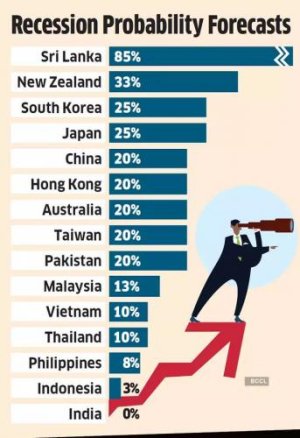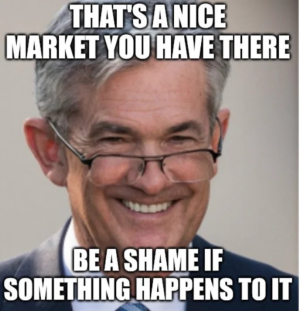Cover Drive Six
First Class Captain
- Joined
- Mar 29, 2021
- Runs
- 4,310
Eurozone inflation hits record 8.1% amid rising energy costs
Inflation in the 19 countries that use the euro currency hit a record 8.1 percent in May.
Annual inflation in the eurozone soared past the previous record of 7.4 percent reached in March and April, according to the latest data from European Union statistics agency Eurostat.
Energy prices jumped 39.2 percent, highlighting how the war and the accompanying global energy crunch are making life more expensive for the eurozone’s 343 million people.
Inflation in the eurozone is now at its highest level since recordkeeping for the euro began in 1997. The latest figures add pressure on European Central Bank policymakers to raise interest rates from ultralow levels to rein in the rising prices.
Food prices also rose 7.5 percent, Eurostat said — another sign of how the war is pushing up prices around the world because Russia and Ukraine are major global food suppliers. Prices for goods like clothing, appliances, cars, computers and books rose 4.2 percent. Prices for services increased 3.5 percent, Eurostat said
https://www.moneycontrol.com/news/business/economy/eurozone-inflation-hits-record-8-1-amid-rising-energy-costs-8613751.html
Inflation in the 19 countries that use the euro currency hit a record 8.1 percent in May.
Annual inflation in the eurozone soared past the previous record of 7.4 percent reached in March and April, according to the latest data from European Union statistics agency Eurostat.
Energy prices jumped 39.2 percent, highlighting how the war and the accompanying global energy crunch are making life more expensive for the eurozone’s 343 million people.
Inflation in the eurozone is now at its highest level since recordkeeping for the euro began in 1997. The latest figures add pressure on European Central Bank policymakers to raise interest rates from ultralow levels to rein in the rising prices.
Food prices also rose 7.5 percent, Eurostat said — another sign of how the war is pushing up prices around the world because Russia and Ukraine are major global food suppliers. Prices for goods like clothing, appliances, cars, computers and books rose 4.2 percent. Prices for services increased 3.5 percent, Eurostat said
https://www.moneycontrol.com/news/business/economy/eurozone-inflation-hits-record-8-1-amid-rising-energy-costs-8613751.html








